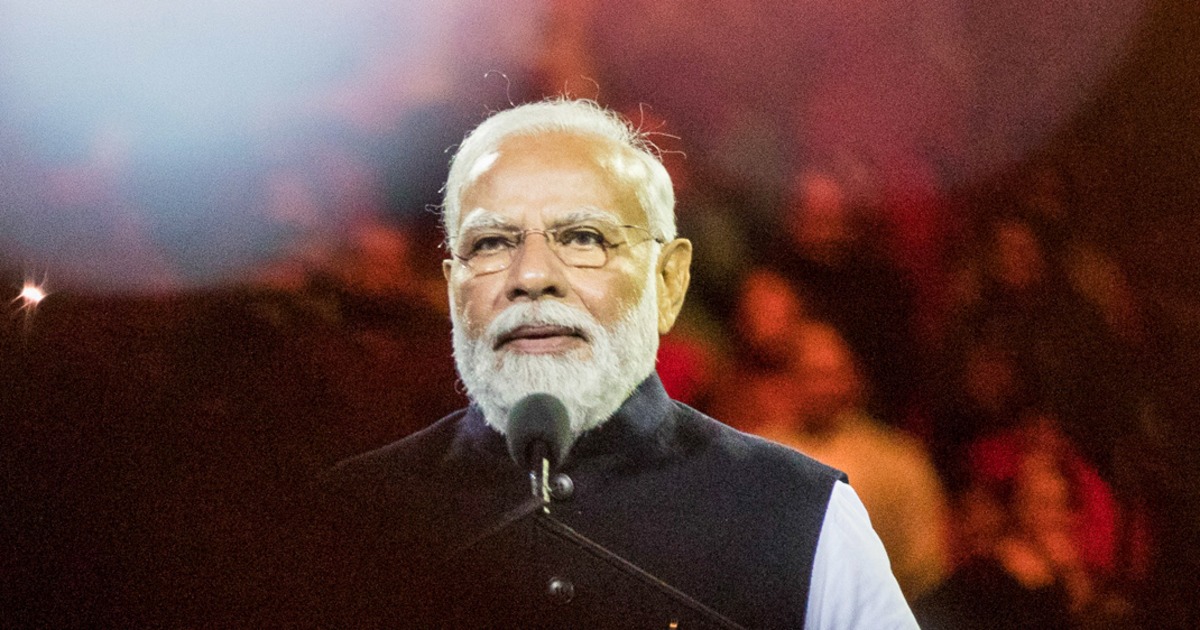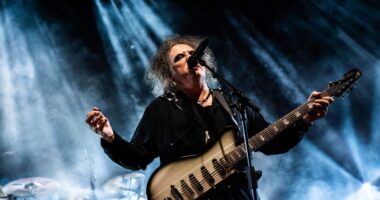
WASHINGTON — Indian Prime Minister Narendra Modi will deliver a speech to Congress on Thursday afternoon in a sign of growing ties between the world’s two largest democracies.
Modi will make the rare address to a joint session of Congress the same day President Joe Biden and first lady Jill Biden host him for a state dinner, an honor typically reserved for the closest allies of the U.S.
While Modi faces criticism from some U.S. lawmakers and advocates over human rights and his country’s reluctance to break with Russia in its war in Ukraine, the Biden administration and leaders of both major political parties agree that India is a vital ally for Washington’s top foreign policy goal — containing the rise of China — and a partner on defense, technology and mitigating climate change.
Sen. Mark Warner, D-Va., the Intelligence Committee chair and a co-chair of the Senate India Caucus, welcomed Modi in a statement Wednesday.
“Prime Minister Modi’s visit has tremendous potential to deepen the bonds between our countries, and expand a number of lines of cooperation, from strengthening defense relations to increased collaboration in the tech realm,” Warner said. “In the face of rising global authoritarianism, it is more important than ever for our countries — as the world’s two largest democracies — to respect and reaffirm the shared values that are the foundation of both of our countries, and to bolster democracy, universal human rights, tolerance and pluralism, and equal opportunity for all citizens.”
Warner and Sen. John Cornyn, R-Texas, the other co-chair of the India caucus, introduced legislation Wednesday that would add India to the list of favored nations for U.S. arm sales under the Arms Export Control Act, alongside NATO members and Australia, Japan, Israel, New Zealand and South Korea.
Part of their goal is to cultivate closer U.S.-India ties that would help New Delhi break its dependence on Moscow for military equipment. The senators hope to add it to the annual defense authorization bill.
“We need to continue to encourage India to align itself with the democracies in the world and not the autocracies,” Cornyn said. “And obviously, history is a big influence here, because since — what, 1947? — the United States has been more aligned with Pakistan, and India was then forced in the arms of Russia. And obviously, they’re very dependent, still, on Russian weapons.”
Senate Finance Committee Chair Ron Wyden, D-Ore., and ranking member Mike Crapo, R-Idaho, called on Biden to “prioritize the elimination of India’s significant barriers to U.S. trade and investment on the Indian subcontinent.”
Still, Modi will confront tensions with the U.S. on a few fronts.
A letter led by Sen. Chris Van Hollen, D-Md., and Rep. Pramila Jayapal, D-Wash., and signed by more than 70 Democrats ahead of Thursday’s state dinner pressed for Biden to “raise directly with Prime Minister Modi areas of concern” about the Indian landscape.
“A series of independent, credible reports reflect troubling signs in India toward the shrinking of political space, the rise of religious intolerance, the targeting of civil society organizations and journalists, and growing restrictions on press freedoms and internet access,” the lawmakers wrote, adding that they seek a discussion about a “full range of issues important to a successful, strong, and long-term relationship between our two great countries.”
Meanwhile, Muslim American activists have organized protests near the White House. Safa Ahmed of the Indian American Muslim Council accused Modi of promoting a “Hindu nationalist ideology” and “anti-minority policies” and criticized Biden’s “decision to platform Modi.”
The early June invitation for Modi to speak on Capitol Hill was signed by the top Democrat and the top Republican in both the House and the Senate, who mounted a show of bipartisanship to praise “the enduring friendship between the United States and India.”
Modi accepted within days, heralding “the ever-growing connection” between the two countries as “a force for global peace, stability and the well-being of all mankind.”
“The consistent and robust bipartisan support of the U.S. Congress has been instrumental in advancing our strategic ties and enriching our people-to-people connections,” Modi wrote in a letter.
Modi — who has dealt with violent clashes with China on the border it shares with India — is visiting at a time of rising tensions between the U.S. and China.
The Indians “don’t want to be dependent on either Russia or the United States. But they are a rising global power, obviously, with the 1.4 billion people,” Cornyn said. “Everybody’s focused on China, but the good thing about India is they actually believe in the rule of law and they are a democracy.”
Source: | This article originally belongs to Nbcnews.com









